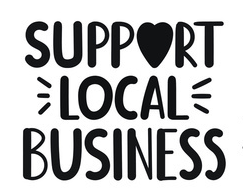Tips for the First-Time Gardener

Gardening--no matter if it’s a veggie garden or a landscape filled with flowering plants, it’s no small undertaking. Many first timers spend a great deal of money on plants, fertilizer, and tools, only to find that their plants die or simply don’t produce as they’d planned. There are a lot of factors to a successful garden or landscape, and the basics are covered here in these tips!
-
Start talking to gardening friends and family now. They have been where you are and know it’s not easy to have a magazine-worthy garden the first year. Find out what grows best in your area and choose a few vegetables to try.
-
Your first plot needs to be small and in a part of your yard that gets at least six hours of sunlight per day. Shade in the evening is great to help cool plants on those hot Summer days, but full sun is best during the day.
-
A soil test is important and is most easily done through your local cooperative extension service. The results normally include recommendations for improving your soil quality.
-
Consider using a raised bed for your first attempt! It will make soil-amending easier and gives you more control of water retention/drainage.
-
Purchase seedlings from your garden center instead of starting everything from seed. You’ll have a head start on the harvest!
-
Don’t forget to add some flowering plants to your vegetable garden! Planting a few companion plants will bring pollinators and beneficial insects that help keep the bad bug population down.
Flower Gardening
-
Once again, talk to your neighbors; look at what they are growing in their landscapes and flower beds, and ask them what is the easiest to grow and care for.
-
Soil prep is just as important for blooms as it is for the vegetable garden; test the soil from the areas you’re planning on planting.
-
Flowering plants have different needs when it comes to sunlight. While geraniums thrive in full sun, impatiens need mostly-to-full shade. Take care to note the sunlight recommendation on plant tags when you’re making your purchases.
-
If you don’t have time to lug the water hose or sprinkling can all over the yard, you might want to plant in one main area, or purchase a soaker hose that will stay put so you only have to turn the water on.
-
Planning is important, and you’ll save time in the nursery if you decide what you’d like to grow before you go. Check out this list of easy-to-grow flowers from HGTV.
Virtually all gardeners have learned by trial and error, and it’s likely you will, too. Don’t let a few failures keep you from falling in love with growing plants and vegetables. It’s such a rewarding undertaking, and recent studies are even looking at how digging in the dirt can improve your mental health as well!
Courtesy of New Castle County DE Realtors Tucker Robbins and Carol Arnott Robbins.
Photo credit: miracle gro














